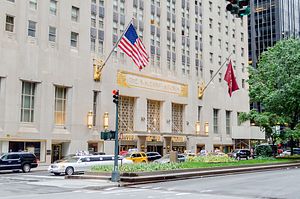Some China-related links to take you into the weekend…
Against the backdrop of Beijing’s attempts to stem capital outflows from China, British banking giant HSBC announced that it would stop providing mortgages to some Chinese citizens interested in purchasing real estate in the United States. Reuters has the story on the change, which follows moves to limit foreign exchanges by Beijing. Right now, buying U.S. real estate is big business – Chinese buyers spent $28.6 billion on U.S. properties in 2015.
Those limits could trickle down to affect U.S. real estate markets – China Daily’s William Hennelly takes a look at how San Francisco’s real estate markets is plummeting, in part due to reduced interest from Chinese buyers.
In other international news, two Chinese nationals were killed in a bombing in Laos this week. Details on the bombing – including possible motivations – are scarce, but Edward Wong of the New York Times pieces together what information there is.
In military news, the chief of the Royal Thai Army visited Beijing this week. There was little public information about his meetings with Chinese Defense Minister Chang Wangquan, but Xinhua published a brief piece saying the two sides had pledged to improve their cooperation on training and the defense industry.
Writing for Foreign Affairs, Jeffrey Wasserstrom takes a look at the disappearances of five people linked to Hong Kong booksellers – companies that specialize in publishing tell-all (and often thinly-sourced) books on Chinese Communist Party leaders. To understand the events of 2016, Wasserstrom first takes us back to the reassurances Beijing gave ahead of taking control of Hong Kong in 1997 – and then on to the larger crackdown on various forms of dissent and free speech that has been taking place across the mainland since Xi Jinping came to power.
In the wake of Xi’s trip to the Middle East last week, Andrew Small of the German Marshall Fund looks at China’s changing role in the region. The main takeaway: “China has shown more willingness to utilize military means in the greater Middle East than in any region beyond Asia.”
Over at China Media Project, David Bandurski takes a look at the familiar phrase “hurting the feelings of the Chinese people,” which showed up recently in the televised (and likely coerced) confession of Swedish national Peter Dahlin. What does this phrase, which sounds so odd to foreign ears, really mean in Chinese diplomatic parlance? As an added bonus, CMP includes a slideshow of all the countries accused of hurting China’s feelings since the 1950s (spoiler alert: there are a lot).
Finally, a new resource for you to explore this weekend and beyond – ChinaFile has put together an interactive tool on China’s anti-corruption campaign. The tool provides a visualization of the 1,500 named targets of investigations, what the status of their cases are, who they’re connected to, where they’re from, and when they came under the hammer. The end result is one of the most comprehensive pictures yet of what’s going on with the anti-corruption crackdown.

































